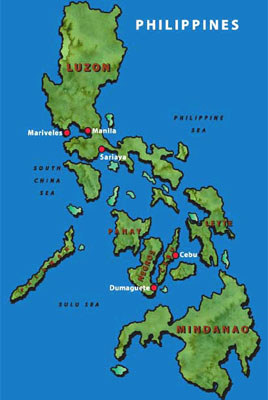Crisis cuts viability of large-scale biofuels production in Asia
 Manila - The global economic downturn and falling fuel prices have dampened the viability of large-scale biofuels production in Asia, a study by a US aid agency said Thursday.
Manila - The global economic downturn and falling fuel prices have dampened the viability of large-scale biofuels production in Asia, a study by a US aid agency said Thursday.
The US Agency for International Development (USAID) said that over the past year, the intense volatility on the global commodity and oil markets has eroded the profitability of biofuel production in Asia.
"At the same time, concerns about the sustainability of biofuels imports to Europe from Asian countries have curbed export demand," the agency said in the report, "Biofuels in Asia: An Analysis of Sustainability Options."
"Currently, biofuels production facilities in many Asian countries are operating at a fraction of their capacity, and many industry experts believe that the biofuels bubble has burst," it added.
The USAID report concluded that large-scale production of biofuels in Asia is unlikely to make a significant contribution to Asia's future fuel needs and energy security.
The agency also warned that the current expansion of biofuels in Asia, if undertaken using business-as-usual practices, could have a severe environmental impact, undermine social goals and result in unfavourable economic tradeoffs.
The report said the greatest promise for biofuels in the region lies in decentralizing its production and use.
"All over Asia there are local opportunities for biofuels to be developed in ways that reduce dependence on fossil fuels, decrease greenhouse gas emissions, improve air quality and create jobs while safeguarding the environment, land and labour rights and food security," it said.
The challenge is to create policies that encourage crop production that uses less water and land and does not compete with agricultural crops.
The USAID report was released during the 4th Asia Clean Energy Forum 2009 hosted by the Manila-based Asian Development Bank (ADB), which aims to advance climate change and clean energy solutions in the region.
During the forum, which gathered Asia-Pacific government leaders, policymakers and climate change experts, the ADB also launched an Energy for All Partnership that aims to provide access to modern energy to an additional 100 million people in the region.
Ursula Schaefer-Preuss, ADB vice president, said the partnership will emphasize low-cost, environment-friendly technologies and innovative financing mechanisms that will enable the poorest household to gain access to energy. (dpa)